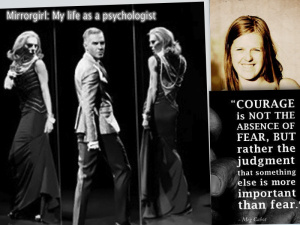I just read a great article by my favourite author, Donald Miller at his Storyline Blog.
It was about not giving into self-pity, and he gave the example of an Olympic ice skater who knew how to not wallow in his mistakes. You can’t wallow when you’re performing in a competition and make a mistake. You have to pick yourself up quick smart and keep going even when it feels so demoralizing to fall.
This lesson can be applied to life. We’re gonna make mistakes, we’re gonna fail and fall regularly. We’re gonna have cause to to feel self-pity and wallow. But don’t be consumed by it, because it stops you from getting on with what you’re supposed to be doing.
I know when I do something stupid, I can cut myself up about it for ages. This doesn’t help anything at all. So there’s no use wallowing in it and thinking I’m the worst of the worst.
No, I learn my lesson. I made a mistake, I learn from it, and then I move on.
When I don’t move on and I wallow, it cripples me. I beat myself up and I become ineffective because I feel like I’m no good and have nothing to offer. I get consumed by my wallowing thoughts.
There’s no point.
I know.
I’ve done both. I’ve wallowed over a mistake and felt terrible for ages; and I’ve controlled my mind to stop dwelling on it and move on with the lesson I learnt.
I can tell you it took a lot of effort to control my mind because it naturally wanted to wallow, but I was so much better for it when I didn’t give into it. I wasn’t crippled, I wasn’t wasting time worrying when there was nothing I could do, and I could continue on with life and focusing on things that did matter.

























